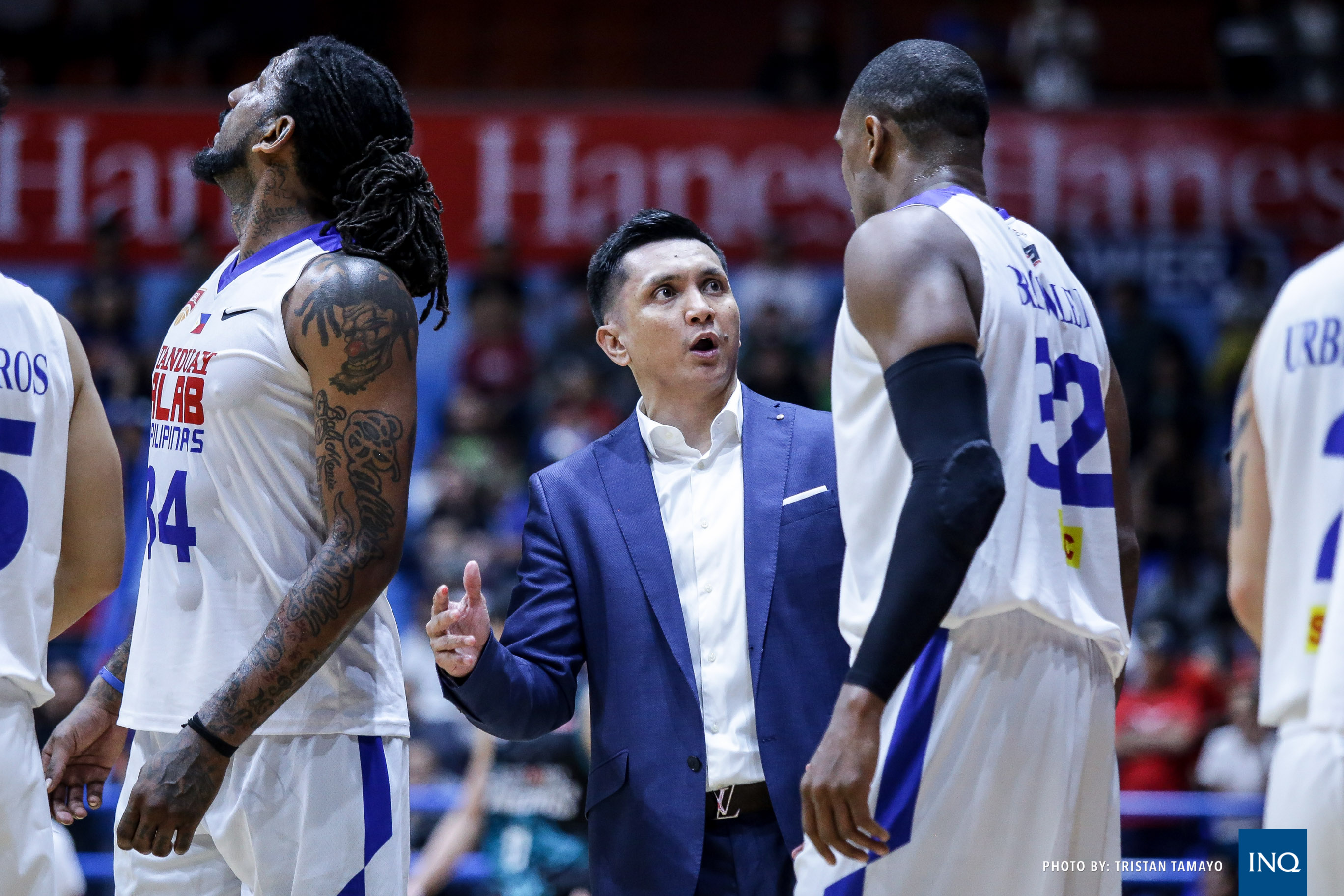
FILE – Alab Pilipinas head coach Jimmy Alapag gives instructions to forward Justin Brownlee during an ABL game against Malaysia. Photo by Tristan Tamayo/INQUIRER.net
MANILA, Philippines — Jimmy Alapag and TY Tang—former point guards turned coaches—have been in the game long enough to know that talent isn’t everything.
Alapag, the Alab Pilipinas head coach in the Asean Basketball League, and TY Tang, the College of St. Benilde mentor in the NCAA, share a similar mindset when it comes to recruitment: The character of a player is crucial in putting a team together.
“We’ve all seen how much the game has evolved, we’ve all seen how much talent is out there. Talent is actually really easy to find especially at the professional level but you start to separate guys when you look at the character, you look at the work ethic because when you have that, you know that everyday it’s gonna be quality in terms of your practices, it’s gonna be quality in terms of the focus of the guys,” said Alapag in the Coaches Unfiltered podcast.
“And it’s important because it’s that old saying it only takes one bad apple to ruin the bunch and I feel really fortunate these past three years with Alab, we’ve had really just topnotch guys in terms of character and work ethic,” added Alapag.
Alapag has been successful so far at Alab’s helm, leading the team to the ABL title in his first season with the club in 2018.
His success with the team also earned him a spot as an assistant coach with the San Miguel Beermen in the PBA, helping lead the team to a title in the 2019 Philippine and Commissioner’s Cups.
Tang, meanwhile, was tasked of bringing the Blazers back into relevancy after being an afterthought for so long.
In Tang’s first two seasons with the Blazers, the team nearly made the Final Four.
Under Tang, the team has slowly built a reputation for its toughness.
“For me, the character part is most important, he should be really willing to learn more than just being able to play or wanting to play. He needs to be very much willing to learn,” said Tang. “Second is I want to see the dedication and the commitment that he has, not only to the sport but also to his own personal life because I think that’s very important on how you see him growing with you through the years that you’ll be with him in college and then the last thing is the way that how he is tough on himself.”
“I’d say the attitude because that’s also big on how you can see he’ll be able to play during the time that you really need him to play or the time when the crunch time comes, will he be there or not?”

